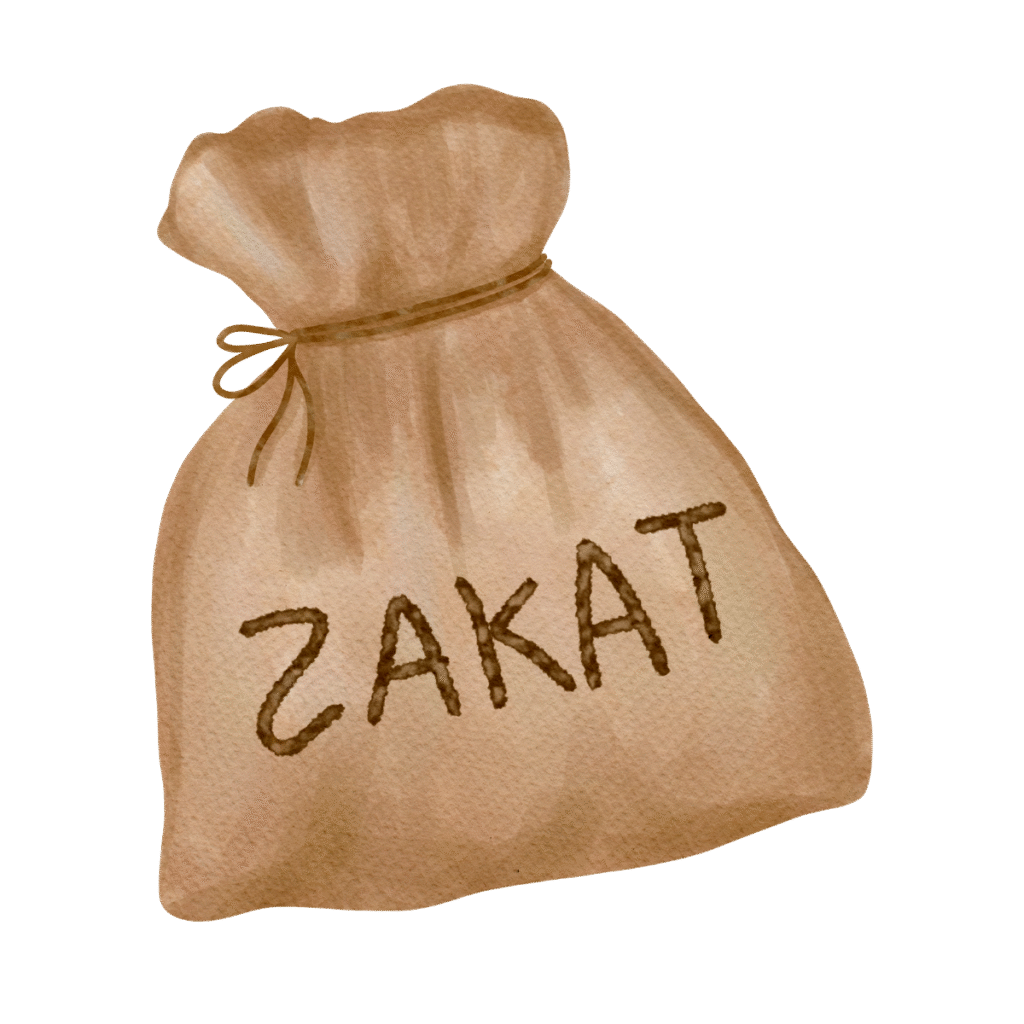Islam provides clear guidance on what is permissible (halal) and what is forbidden (haram). These principles are designed to protect us spiritually, physically, and emotionally, helping us lead wholesome lives. Soon, resources explaining the proof and explanation for all of these things will also be created, but in the meantime, here is a general overview.
What is Halal?
Halal refers to anything that is lawful or permitted in Islam.
1. Halal Foods and Drinks
- All Fruits and Vegetables: Apples, bananas, dates, oranges, etc.
- Grains and Legumes: Wheat, rice, lentils, beans, and quinoa.
- Seafood: Fish, shrimp, crab, and other seafood (except harmful or poisonous types).
- Meat Slaughtered Islamically: Beef, lamb, chicken, and goat processed according to halal standards.
- Dairy Products: Milk, cheese, yoghurt (as long as they don’t contain haram additives like pork-derived gelatin).
- Non-Alcoholic Drinks: Water, tea, coffee, juice, and milk.
- Halal Sweets: Desserts and snacks made without haram ingredients (e.g., gelatin-free candies).
2. Halal Financial Practices
- Earning through Ethical Jobs: Professions that benefit society, such as teaching, healthcare, design, business, or engineering.
- Profit from Trade: Businesses that sell halal goods and services.
- Charity (Sadaqah): Giving to the needy, either individually or through organisations.
- Zakat (Obligatory Charity): A key pillar of Islam to purify wealth.
- Islamic Banking: Financial services that avoid interest (riba) and unethical investments.
3. Halal Actions and Behaviours
- Acts of Worship: Praying (Salah), fasting, reading the Qur’an, making dua, and dhikr (remembrance of Allah).
- Kindness to Others: Helping family, friends, neighbours, and strangers.
- Respecting Parents: Treating them with love and compassion.
- Maintaining Honesty: Being truthful in all dealings and communications.
- Fulfilling Promises: Keeping commitments and agreements.
- Protecting Others’ Rights: Ensuring fairness and justice in all interactions.
- Pursuing Knowledge: Learning for self-improvement and benefiting society.
4. Halal Relationships
- Marriage: Lawful unions performed in accordance with Islamic teachings.
- Family Ties: Maintaining good relationships with relatives and fulfilling responsibilities.
- Brotherhood and Sisterhood: Building friendships that align with Islamic values.
- Raising Children: Providing for their needs and guiding them toward righteousness.
- Modest Interactions: Interacting respectfully and modestly with others.
5. Halal Entertainment and Media
- Beneficial Entertainment: Content that uplifts, educates, or aligns with Islamic principles.
- Recreational Activities: Sports, hiking, swimming, and other physical activities.
- Reading and Learning: Books and content that encourage personal growth and knowledge.
- Cultural Arts: Calligraphy, Islamic art, and storytelling rooted in positive values.
- Nasheeds (Islamic Songs): Songs without inappropriate themes or instruments (if you follow stricter views).
6. Halal Dress and Adornment
- Modest Clothing: For men, covering from navel to knee; for women, covering the entire body except the face and hands (varies with scholars’ interpretations).
- Natural Materials: Wearing cotton, wool, linen, or other permissible fabrics.
- Adornment for Women: Jewellery and makeup (used modestly and within Islamic boundaries).
7. Halal Financial Investments
- Halal Stocks: Investing in companies involved in lawful activities (e.g., technology, healthcare).
- Real Estate: Buying or renting properties for personal or lawful business use.
- Entrepreneurship: Running or investing in businesses that benefit society and avoid haram.
8. Halal Spiritual Practices
- Daily Dua and Dhikr: Remembering Allah in daily life and asking for guidance.
- Seeking Forgiveness (Tawbah): Repenting and returning to Allah.
- Gratitude Practices: Thanking Allah for blessings.
- Pilgrimage: Performing Hajj or Umrah for spiritual purification.
9. Halal Environmental and Animal Care
- Caring for Animals: Feeding, providing shelter, and showing compassion to all creatures.
- Gardening and Farming: Growing food and caring for the environment.
- Avoiding Waste: Using resources responsibly and sustainably.
10. Halal Speech and Language
- Encouraging Words: Speaking kindly and encouraging others.
- Truthfulness: Saying what is true and avoiding falsehood.
- Supplication: Using beautiful and meaningful language in prayers and conversations.
- Recitation of Qur’an: Reading and listening to Allah’s words with sincerity.
11. Halal Self-Care and Personal Development
- Exercise and Health: Keeping fit and healthy in lawful ways.
- Cleanliness and Hygiene: Maintaining personal and environmental cleanliness.
- Halal Hobbies: Pursuing interests like crafting, painting (without depicting animate beings), or cooking.
- Mental Well-Being: Seeking therapy or support when needed.
What is Haram?
Haram refers to anything that is forbidden in Islam.
1. Haram Foods and Drinks
- Pork and Pork Products: Includes bacon, ham, gelatin, or any derivative.
- Carrion (Dead Animals): Animals that die without proper Islamic slaughter.
- Blood and Blood Byproducts: Drinking or consuming blood in any form.
- Alcohol: Includes all intoxicating drinks.
- Intoxicants: Any drug or substance that causes intoxication or impairs judgment (e.g., recreational drugs).
- Meat Not Slaughtered Islamically: Unless from seafood or other exceptions.
- Animals Sacrificed to Idols or Deities: Meat dedicated to anything other than Allah.
2. Haram Financial Practices
- Riba (Interest): Taking or giving interest in loans, mortgages, or financial dealings.
- Gambling and Betting: Includes lotteries, casinos, and betting games.
- Unethical Business Practices: Fraud, deception, exploitation, and monopolisation.
- Earning Through Haram Means: Includes jobs involving alcohol production/sales, gambling, pornography, or anything harmful to society.
3. Haram Actions and Behaviours
- Lying: Spreading falsehoods intentionally.
- Backbiting and Gossiping: Speaking ill of someone behind their back.
- Slandering: Making false accusations against someone.
- Cheating: Deception in any form, including business and relationships.
- Stealing: Taking something that does not belong to you.
- Murder and Violence: Harming or killing others unjustly.
- Oppression and Injustice: Treating people unfairly or denying their rights.
- Breaking Promises: Especially if it harms others.
- Suicide or Self-Harm: Harming one’s own body is prohibited in Islam.
4. Haram in Relationships and Interactions
- Zina (Fornication and Adultery): Sexual relations outside of marriage.
- Homosexual Acts: Engaging in same-gender sexual relations.
- Unlawful Gaze: Looking lustfully at someone not lawful for you.
- Inappropriate Physical Contact: With those you’re not married to or related to (mahrams).
- Disrespecting Parents or Elders: Islam places great importance on respecting parents and elders.
5. Haram Entertainment and Media
- Pornography: Watching or producing explicit material.
- Music with Haram Content: Encouraging immorality, profanity, or indulgence in haram activities.
- Violent or Immoral Games/Movies: Content that promotes haram behaviour.
- Time-Wasting Activities: Overindulgence in activities that distract from obligations (e.g., excessive gaming, binge-watching).
6. Haram Dress and Adornments
- Immodest Clothing: Clothing that reveals too much or is tight/fitted, for both men and women.
- Gold for Men: Wearing gold jewellery.
- Silk for Men: Wearing pure silk clothing.
- Imitating the Opposite Gender: Dressing or behaving in a way that mimics the opposite gender.
- Tattooing: Permanent tattoos are considered to alter Allah’s creation.
7. Haram Social and Political Practices
- Oppression: Subjugating or harming others through power or authority.
- Bribery: Giving or taking bribes to gain unfair advantages.
- False Testimony: Lying under oath or giving false evidence.
- Racism and Tribalism: Discriminating against others based on race, ethnicity, or lineage.
- Unlawful Leadership: Supporting oppressive or corrupt rulers.
8. Haram Spiritual Practices
- Shirk (Polytheism): Associating partners with Allah in worship.
- Witchcraft and Sorcery: Practising or seeking magic or the occult.
- Fortune-Telling: Seeking knowledge of the unseen from anyone other than Allah.
- Astrology: Believing stars or planets control human fate.
- Innovation in Religion (Bid’ah): Adding practices to Islam not based on the Qur’an or Sunnah.
9. Haram Environmental and Animal Cruelty
- Wasting Resources: Overusing or destroying natural resources unnecessarily.
- Animal Cruelty: Abusing or killing animals without a valid reason.
- Destroying Nature: Harming the environment, such as deforestation or pollution.
10. Haram Speech and Language
- Cursing and Swearing: Using profane or abusive language.
- Mocking Others: Making fun of or insulting others.
- False Oaths: Swearing by Allah or other things falsely.
- Blasphemy: Speaking ill of Allah, the Prophets, or sacred texts.
How to Approach Halal and Haram
- Start Small: Focus on learning one or two things at a time—like avoiding haram foods or starting to dress modestly.
- Seek Knowledge: When in doubt, consult trusted scholars, Islamic resources, or your local mosque.
- Trust Allah’s Mercy: If you make a mistake, remember that Allah is forgiving. The key is to recognise it and strive to do better.
Grey Areas (Doubtful Matters)
The Prophet Muhammad (ﷺ) said:
“What is lawful is clear, and what is unlawful is clear, but between them are matters that are doubtful.” (Sahih al-Bukhari 52)
When unsure, it’s best to avoid the doubtful matter and seek guidance.



